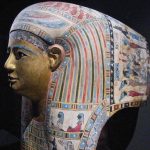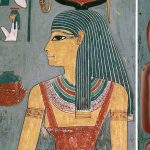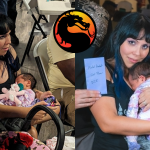The Forgotten Feast: A Thanksgiving of Salt and Wine

Related Videos:
Long before the story of the Pilgrims and Plymouth Rock became a cornerstone of American tradition, another tale of gratitude unfolded on a sun-drenched shore. This Thanksgiving was not born of an autumn harvest, but of a long and perilous sea journey’s end. The year was 1565, and the air was thick with the scent of salt and the promise of a new world.

For weeks, the 800 soldiers, sailors, and settlers aboard the Spanish fleet had known nothing but the endless expanse of the Atlantic. Led by the determined explorer Pedro Menéndez de Avilés, they had endured storms, sickness, and uncertainty. When their ships finally dropped anchor in a sheltered bay, their relief was overwhelming. Their first act upon setting foot on the strange and verdant land was not to conquer, but to give thanks.

Watching from the cool shade of the treeline were the local Native Americans, the Timucua people. They observed with curiosity as the newcomers, clad in metal and heavy fabrics, gathered for a solemn ceremony. A Catholic priest raised his hands to the sky, and the sound of a Latin Mass—a prayer of Thanksgiving for their safe arrival—drifted through the air, a foreign sound in an ancient land.

When the Mass concluded, Menéndez de Avilés extended a gesture of peace and invitation. He understood that survival in this new place depended not just on faith and fortitude, but on diplomacy. The Timucua, cautious but open, accepted.

What followed was a feast that looked nothing like the images we conjure today. There was no roasted turkey, no pumpkin pie, no cranberry sauce. Instead, the Spanish shared the provisions that had kept them alive at sea. They brought out salted pork, tough and savory, and casks of rich red wine from their homeland in Spain. It was a meal of survival and endurance. The Timucua, in turn, may have brought contributions from their own harvest, like yucca, a starchy root from the Caribbean.

Together, the two vastly different cultures shared a meal. Soldiers in polished armor sat near Timucua tribesmen adorned with feathers and shells. They broke bread—or its equivalent—and though they could not share a language, they shared a moment of humanity. It was a simple, powerful act of communion, a recognition of their shared existence in this place at this moment.

This gathering in 1565 was a true blending of worlds, a Thanksgiving founded on gratitude for survival and the cautious hope for peace. It was a feast of salted pork and Spanish wine, of faith and diplomacy, held more than half a century before the Pilgrims’ celebrated dinner. It stands as the nation’s first real Thanksgiving—a forgotten feast that reminds us of the rich, complex, and multicultural roots of American history.











